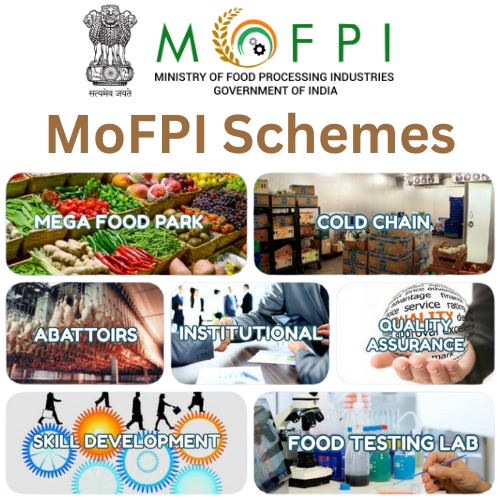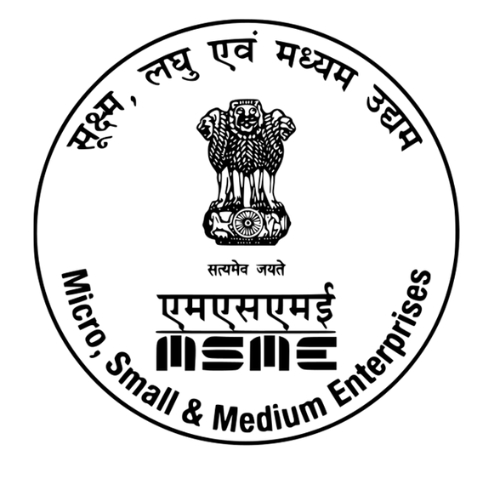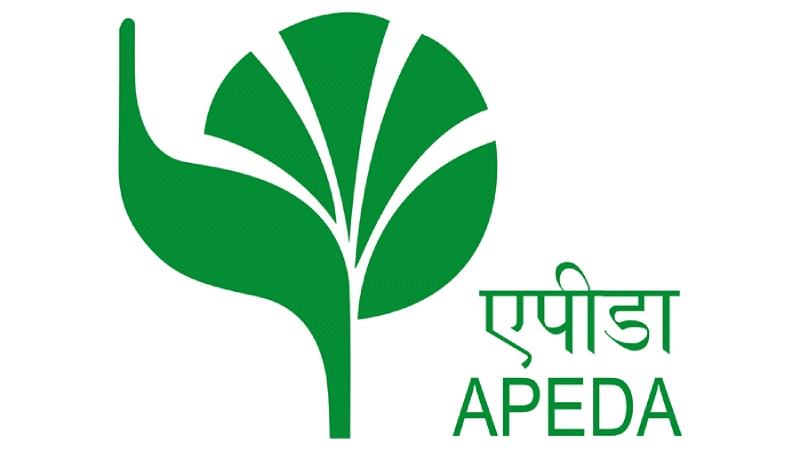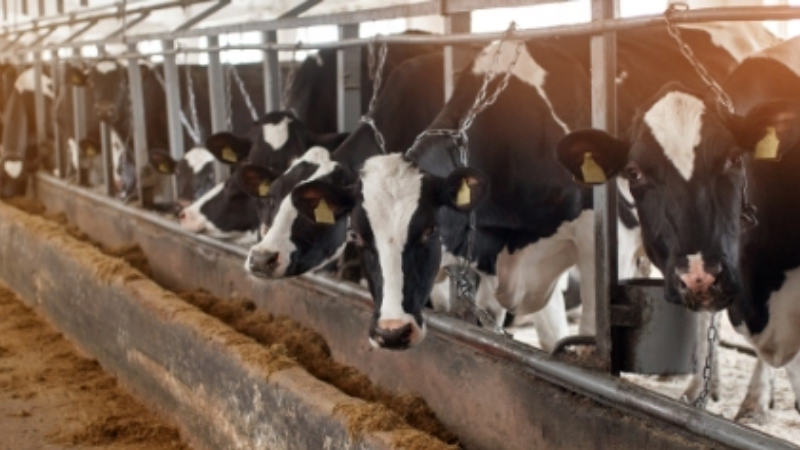DPR
The Ministry of Food Processing Industries is a government department in India that is responsible for formulating and implementing policies and programs for the development and promotion of the food processing industry. Its main goal is to enhance the value of agricultural produce, minimize wastage, and create employment opportunities in the food processing sector.
MoFPI-PMKSY Schemes:
The Pradhan Mantri Kisan Sampada Yojana (PM-Kisan SAMPADA Yojana), which translates to Prime Minister Farmer Wealth Creation Scheme, is a program launched by the Government of India.

It aims to create a robust and efficient post-harvest infrastructure for the agricultural sector. Objectives: The primary objectives of the scheme include modernizing food processing infrastructure, reducing wastage at various stages of the food supply chain, increasing the processing levels, enhancing shelf life of perishable produce, and promoting value addition.
Schemes:
- Integrated Cold Chain and Value Addition Infrastructure
- Creation/ Expansion of Food Processing and Preservation Capacities (Unit Scheme)
- Infrastructure for Agro-processing Clusters
- Food Safety and Quality Assurance Infrastructure
- Human Resources and Institutions –Research & Development
- Mega food parks
Financial Assistance: Financial assistance is provided in the form of grants-in-aid ranging from 35% to 75% of the eligible project cost, depending on the category of the project and the location.
MoFPI-PMFME Scheme:
The PMFME scheme stands for Pradhan Mantri Formalisation of Micro food processing Enterprises. It's an initiative launched by the Government of India's Ministry of Food Processing Industries (MoFPI) under the Atmanirbhar Bharat Abhiyan (Self-reliant India Mission).
- Formalize Micro Food Processing Units: The scheme aims to bring existing small food processing businesses in the unorganized sector into the formal fold. This helps them access credit, government benefits, and operate under regulations.
- Support Farmer Producer Organizations (FPOs), Cooperatives & Self-Help Groups (SHGs): The PMFME scheme offers specific support to these groups engaged in agri-food processing.
- Increase Micro-enterprises:By providing financial and technical assistance, the scheme aims to encourage the growth of micro-enterprises in the food processing sector.
Schemes:
Credit Linked Subsidy
Individuals / Proprietorship / Partnership/ FPOs/ NGOs/ Cooperatives/ SHGs/ Pvt. Ltd. Co. would be provided credit-linked capital subsidy @35% of the eligible project cost - maximum of Rs. 10.0 lakhs per unit for upgradation or setting up of new units.
Seed Capital for SHGs
Seed capital @ Rs. 40,000/- per member of SHG for working capital and purchase of small tools maximum upto 4 Lakhs per SHG. Seed Capital given as grant to the SHG Federation by SRLM/SULM through SNA for loan to the members of SHGs.
Common Infrastructure
The Groups - FPOs/ FPCs/ Cooperatives/ SHG and its federation/ Govt. Agencies - established or propose to establish food processing line along with common infrastructure/ Value chain/ incubation centers would be provided credit linked capital subsidy @35% of the eligible project cost (Rs. 10 Cr) with a maximum of Rs. 3.00 Crore.
Marketing & Branding
The scheme provides 50% financial grant for Branding and Marketing Support to groups of FPOs/ SHGs/ Cooperatives or a SPV of micro food processing enterprises to promote their existing or proposed brands to market their processed food products under the scheme
Capacity Building The
The Capacity Building component under PMFME Scheme envisages to provide training on Food Processing Entrepreneurship Development Programme to the PMFME beneficiaries.
ODOP
One District One Product (ODOP) approach to reap the benefit of scale in terms of procurement of inputs, availing common services and marketing of products. It aims to provide the framework for value chain development and alignment of support infrastructure. ODOP approved for 713 districts in 35 States/UTs with 137 unique products. NHB-(National Horticultural Board)
- Fees: No need to pay fee because it is centrally sponsored scheme
- Age limit: Above 18 years
- Educational qualification: At least 8th standard pass
MSME
MSMEs make up over 40% of India's exports, 45% of the industrial output, and close to 8% of the GDP of the nation. They can be appropriately referred to as the "Backbone of the country. In compliance with the Micro, Small and Medium Enterprises Development (MSMED) Act of 2006, the Indian government has implemented MSME, or Micro, Small, and Medium Enterprises. These businesses produced, manufactured, processed, or preserved items and commodities as their primary business.

MSMEs play a significant role in the Indian economy and have made significant contributions to the socioeconomic advancement of the nation. It contributes to the development of the nation's rural and underdeveloped areas in addition to creating job opportunities. As to the Government's annual report for 2018–19, there.
highlighting features of new MSMEs:
- A feature offering MSMEs Collateral-Free Loans
- An agreement to provide Rs. 3 lac crores in loans to MSMEs
- A 12-month moratorium period is being offered to MSMEs.
- MSMEs in the manufacturing and service sectors are treated as one entity and are given a 48-month payback tenure.
- MSMEs are guaranteed a credit score of 100%.
- About 45 Lac units will gain from the reclassification of MSMEs.
APEDA
SCHEME FOR EXTENDING FINANCIAL ASSISTANCE TO SUGAR MILLS FOR ENHANCEMENT AND AUGMENTATION OF ETHANOL PRODUCTION CAPACITY.
LOANS FOR FOOD PARKS AND FOOD PROCESSING UNITS IN DESIGNATED FOOD PARKS.

Highlighting features of new MSMEs:
- A feature offering MSMEs Collateral-Free Loans
- Forming risk mitigation strategies.
- A 12-month moratorium period is being offered to MSMEs.
- MSMEs in the manufacturing and service sectors are treated as one entity and are given a 48-month payback tenure.
- MSMEs are guaranteed a credit score of 100%.
- About 45 Lac units will gain from the reclassification of MSMEs.
NHB
The National Horticulture Board (NHB) was set up by the Government of India in 1984 as an Autonomous organization under the administrative control of Ministry of Agriculture and Farmers Welfare and registered as a society under Societies Registration Act with its headquarters at Gurugram. Presently, NHB has 29 field offices located all over the country. The broad aims and objectives of the Board are to develop production clusters/hubs for integrated

Hi-tech commercial horticulture, development of Post-harvest and cold chain infrastructure, ensuring availability of quality planting material and to promote adoption of new technologies/tools/ techniques for Hi-tech commercial horticulture etc.
Aims & Objectives of NHB Schemes:
The main objectives of the NHB are to improve integrated development of Horticulture industry and to help in coordinating, sustaining the production and processing of fruits and vegetables. Detailed objectives of the Board are as under:-
- Development of hi-tech commercial horticulture in identified belts and make such areas vibrant with horticultural activity, which in turn will act as hubs for development of horticulture.
- Development of modern post-harvest management infrastructure as an integral part of area expansion projects or as common facility for cluster of projects.
- Development of integrated, energy efficient cold chain infrastructure for fresh horticulture produce.
- Popularization of identified new technologies / tools / techniques for commercialization / adoption, after carrying out technology and need assessment.
- Assistance in securing availability of quality planting material by promoting setting up of scion and root stock banks / mother plant nurseries and carrying out accreditation / rating of horticulture nurseries and need based imports of planting material.
- Promotion and market development of fresh horticulture produce.
- Promotion of field trials of newly developed/imported planting materials and other farm inputs; production technology; PHM protocols, INM and IPM protocols and promotion of applied R&D programmes for commercialization of proven technology.
- Promotion of Farm Mechanization in Horticulture through demonstration and its uses at farmers field level to reduce labour cost and increase the productivity of Horticulture crops.
- Promotion of applied R & D for standardizing PHM protocols, prescribing critical storage conditions for fresh horticulture produce, bench marking of technical standards for cold chain infrastructure etc.
- Transfer of technology to producers/farmers and service providers such as gardeners, nurserymen, farm level skilled workers, operators in cold storages, work force carrying out post harvest management including processing of fresh horticulture produce and to the master trainers.
DAHD
The Department of Animal Husbandry and Dairying (AH&D) is one of the Departments of the newly created Ministry of Fisheries, Animal Husbandry & Dairying vide Cabinet Secretariat's Notification No.1/21/7/2019-Cab dated 17.06.2019 published in eGazette S.O.No.1972(E). The Department of Animal Husbandry and Dairying (AH&D) renamed as Department of Animal Husbandry,

Dairying & Fisheries (DADF) was one of the Departments in the Ministry of Agriculture and came into existence w.e.f. 1st February 1991, by converting two divisions of the Department of Agriculture and Cooperation namely Animal Husbandry and Dairy Development into a separate Department. The Fisheries Division of the Department of Agriculture and Cooperation and a part of the Ministry of Food Processing Industries were later transferred to this Department w.e.f. 10th October 1997. The Department is located at Krishi Bhawan, New Delhi and parts of some Divisions of the Department are functioning from Chanderlok Building, Janpath, New Delhi. The Department is responsible for matters relating to livestock production, preservation, protection from diseases and improvement of stocks and dairy development, and also for matters relating to Delhi Milk Scheme (DMS) and National Dairy Development Board (NDDB).
The Department advises State Governments/Union Territories in formulation of policies and programme in the field of Animal Husbandry and Dairy Development. The main thrust areas are:
1. Development of requisite infrastructure in States/ UTs for improving animal productivity.
2. Preservation and protection of livestock through provision of health care.
3. Strengthening of central livestock farms (Cattle, Sheep and Poultry) for development of superior germplasm for distribution to states.
FAQ's
Frequently Asked Questions
What services does Rakhumai Engineering & Services provide?
We offer end-to-end project management solutions for the food processing industry, including site selection, planning, designing, equipment sourcing, installation, and operational support.
Which industries do you cater to?
Our primary focus is the food processing industry. However, we also provide solutions to businesses requiring industrial project management and sustainable manufacturing support.
How does your process work?
Our process begins with understanding your business goals and requirements. We then develop a tailored plan covering every phase, from site acquisition and layout design to implementation and commissioning.
Do you provide custom solutions?
Yes, we specialize in creating custom solutions tailored to the unique needs of each client, ensuring optimal efficiency and results.
Can you help us achieve sustainable operations?
Absolutely. Sustainability is at the core of our services. We implement eco-friendly practices and energy-efficient solutions to help you achieve long-term growth.



